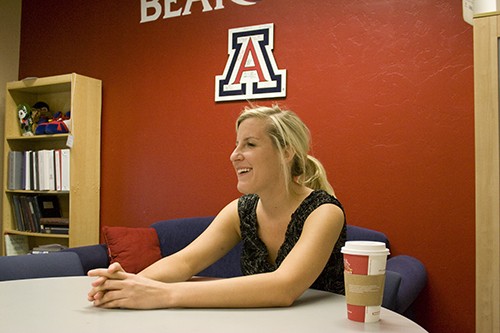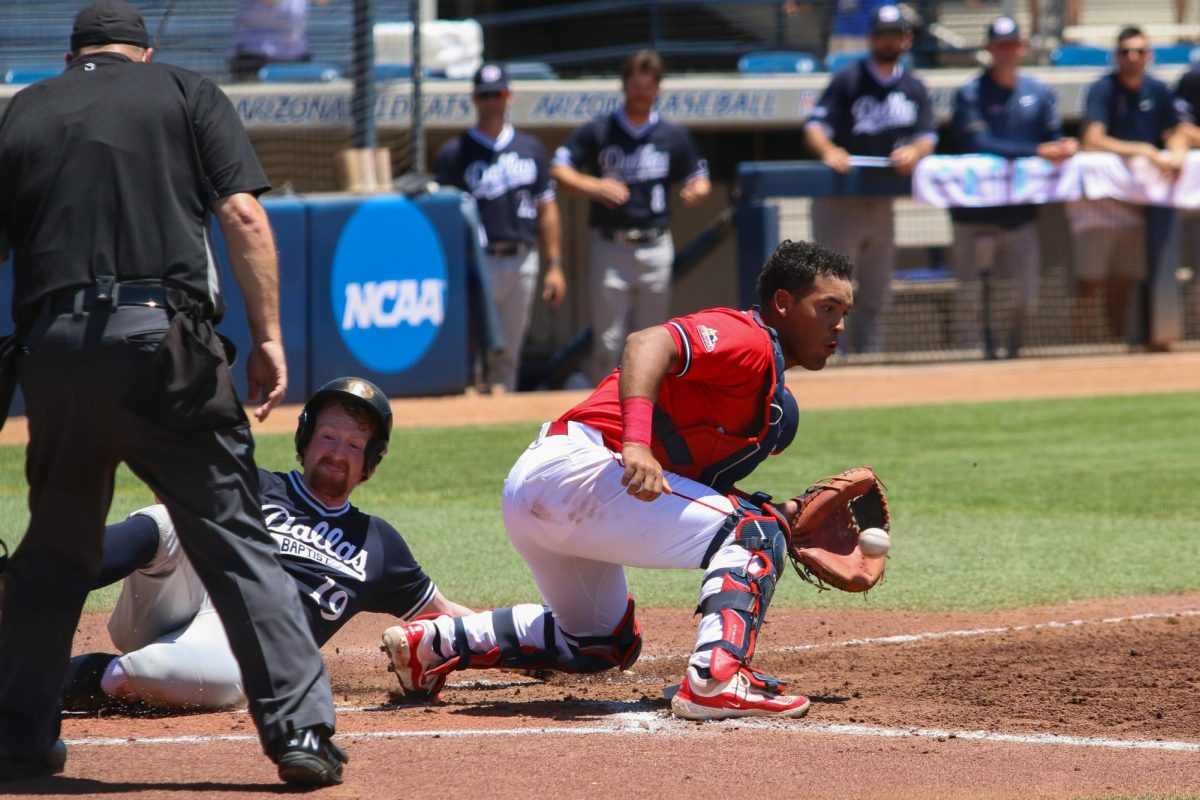The Arizona Daily Wildcat caught up with former ASUA President Emily Fritze in her office just before her graduation from the UA, ending her third year in the Associated Students of the University of Arizona. Fritze first served as a senator, then executive vice president and finally as president and will be graduating in May with a political science degree. She has an internship in Washington D.C. this summer before she goes off to pursue a career in politics. The Daily Wildcat asked her about how it feels to leave the UA and her time as student body president.
Daily Wildcat: What do you wish you knew then that you know now as president?
Emily Fritze: In terms of the preparations that I did, I think I did what was right. But I don’t think you can really prepare yourself for being president. I think I would have liked to know that despite how well you plan, you have to be ready to be thrown in a new direction — that things just come up unexpectedly, and it will be a learning experience.
Is that the advice you’d give to incoming ASUA President James Allen?
I know it will be different for every president but he’s seen me handle some of these situations. And in the event that something happens, like has happened so many times this year in particular, you have to be ready for anything.
The obvious wisdom that is always talked about is that, first and foremost, you are there to represent the student body. You speak for them.
As a president, you are in meetings with administration, with (the Arizona Board of) Regents, with community members but if we don’t have the students, our job wouldn’t exist.
Also, something I’ve focused a lot on this year is transitioning the knowledge. You have to think longer than your term. I’ve tried to get that frame of thinking that not everything will be accomplished in one year.
Take for example Spring Fling. I won’t be here to see it concluded and hopefully accomplished (bringing it back to campus). I knew coming in (that) it wouldn’t be something that would be finished this year.
How do you feel about your presidency and, by extension, your time in ASUA?
I really do feel that you are not going to have a perfect presidency. At the same time, I’m walking away happy. I put so much into this job. That’s all that you can contribute and hope for. A lot of my college has been altered by doing student leadership.
I remember when I was a freshman, I was campaigning for (ASUA) Senate and I was going to give a speech in front of a campus club and my legs were shaking. Now, as a senior, it was not under good circumstances, but I got to speak in front of the president of the United States — and my legs didn’t shake. It’s not the best example, but it shows just how much I was changed by being in ASUA.
College would not have been the same at all — but it’s important for students to find a niche. For me, it’s this but it doesn’t have to be ASUA. But so much of college is outside the academic setting and the classroom experience.
And ASUA has taught me — it’s anything from public speaking to navigating bureaucracy and lobbying and persuading. It’s how to make change.
How did you balance being a student with being student body president?
I was always a person who used to be involved in other activities. It’s about time management and organization and how that fits around class. Luckily, faculty are very understanding of my schedule. Even if I have to miss class, I get things in before deadline to make sure I’m not getting any special treatment.
But balance is still really important to me. Sunday through Friday afternoon is ASUA and Friday night and Saturday is for me and socializing and friends. I think students want to see someone who is human and isn’t a robot. I do go out and have friends, and I think that humanizes me in a good way.
It depends on the week but I’d say the job is about 60 hours a week. Although it’s a huge time commitment, it is also one of the most challenging and rewarding experiences you get to have.
What do you think the legacy of your presidency will be?
I hope that, well at least to me, the focus was on bettering the lives of students at the university. But I also hope that my leadership and my outreach to individual students helped them to see that they have a place that can represent their voices and that they are a part of. From working on sustainability, to student health, to policies.
I think students have a responsibility to take advantage of the university and all it has to offer and I hope that we could inspire students to share in the experiences at their exposure.
I’m leaving thinking that I did the best I could. It wasn’t perfect, but it was the best I could do, and that’s all I can ask for.









